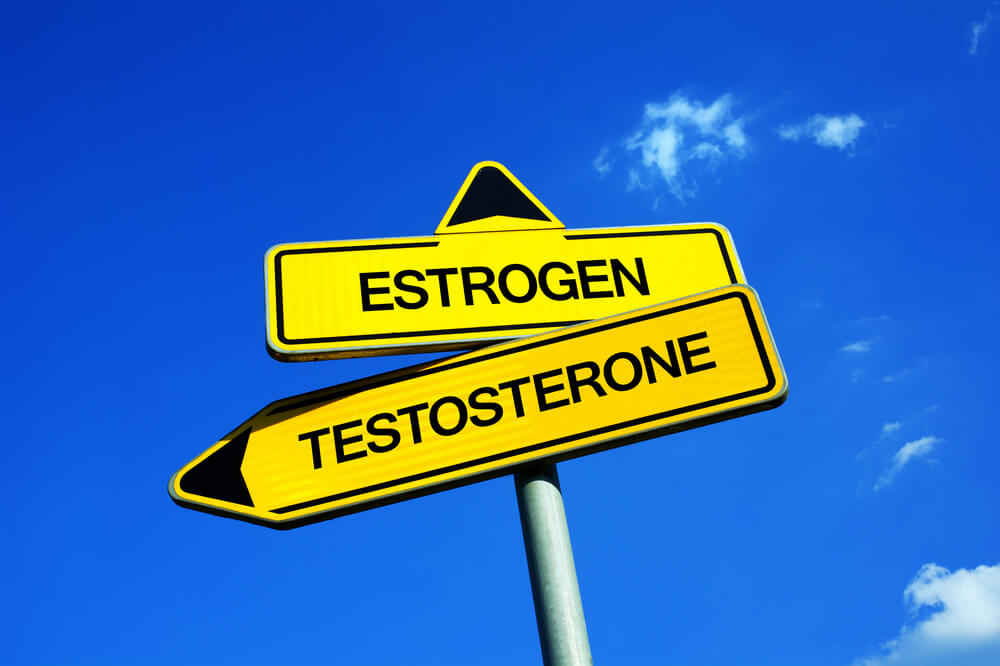Are you aware of the signs of hormonal imbalance? Here’s what you should be paying attention to and how to prevent negative effects.
Ahh our hormones, the chemical messengers responsible for almost every reaction and process that occurs within our bodies. The ones that sometimes affect us silently without us being really aware of it. That is why knowing the signs of hormonal imbalance is particularly important.
Fluctuation of any hormone, whether too much or too little of it, can have a significant impact in our overall health.
Hormonal imbalance symptoms in females are especially telling, because they can also affect their reproductive system and cycle, which can have serious consequences if left unattended.
Depending on the hormone, signs of hormonal imbalance can range anywhere from mild to severe, and include:
- Fatigue
- Weight loss or weight gain
- Increased or decreased heart rate
- Muscle pain
- Thinning hair, brittle or hair loss
- Dry skin
- Increased sensitivity to cold or heat
- Constipation or increased bowel movements
- Increased hunger
- Mood swings (including depression, anxiety, nervousness)
- Swelling of joints
- Blurred vision
- Sweating
- Increased thirst
- Increased urination
- Feeling bloated
- Difficulty concentrating
- Decreased sex drive
Hormonal imbalance symptoms in females also include:
- Irregular periods, including missed periods
- Excessive facial hair
- Trouble losing weight and weight gain
- Changes in skin (including darkening of skin and skin tags)
- Vaginal dryness
- Vaginal atrophy
- Painful intercourse
- Night sweats
- Acne
In order to adopt the proper hormonal imbalance treatment, it is imperative to determine what is exactly causing the problem, as there are many different situations that can affect a particular hormone or gland. Amongst the most common ones, a patient may be suffering from:
- Diabetes disease
- An eating disorder
- Hyperthyroidism
- Hypothyroidism
- Congenital adrenal hyperplasia
- Adrenal insufficiency
- Injury or trauma
- Pituitary tumor
- Thyroiditis
- Hypogonadism
In addition to these causes, someone suffering from a hormonal imbalance may actually have it as a side effect of certain medications, cancer treatments, stress related, etc., and in women it may be because of the use of certain birth control medications, pregnancy, premature menopause and menopause and because of polycystic ovary syndrome.
As far as getting diagnosed, there is not a one-size-fits-all evaluation. In order to determine whether or not a hormonal imbalance exists, and what are the probable causes, you will need to have a sit-down and open dialogue with your Doctor.
After filling out a round of questions that will help determine your current emotional state (whether or not stress may be a cause), your Doctor can run blood tests, conduct a pelvic exam and even suggest an ultrasound to dismiss other possibilities.
Once diagnosed, a hormonal imbalance treatment is easy to follow to correct the issue. In many cases, a doctor will prescribe the intake of synthetic hormones – in most cases estrogen and testosterone therapy – to regain the balance.
Other cases will require specific medication that will be helpful in treating problems of the thyroid gland, diabetes, hair loss (or even excess) and treat polycystic ovary syndrome.
If you are able to identify any or a number of the signs of hormonal imbalance mentioned above, it is important to schedule an appointment with your specialist right away. And untreated hormonal problem can lead to a number of health situations that can be grave if untreated. These include:
- High blood pressure
- Kidney failure
- Neuropathy
- High cholesterol
- Urinary incontinence
- Sexual dysfunction
- Breast cancer
- Heart disease
- Endometrial cancer
- Obesity
- Sleep apnea
- Osteoporosis
- Infertility
In women, it can also increase the risk of suffering a miscarriage, develop gestational diabetes, preeclampsia, needing a caesarian section, high birth weight and the risk of having to use the services of NICU.
Identifying the possible causes of your hormonal imbalance on time is key in preventing things from escalating into plausible health crises. A hormonal treatment plan is usually short in length and easy enough to manage, while it alleviates your symptoms and, in most cases, serves as an actual permanent remedy.
Sources:
https://www.healthline.com/health/hormonal-imbalance
https://www.webmd.com/women/ss/slideshow-hormone-imbalance
https://womeninbalance.org/seventh-woman/do-you-have-a-hormone-imbalance/
https://www.onhealth.com/content/1/hormone_imbalance_signs_symptoms

